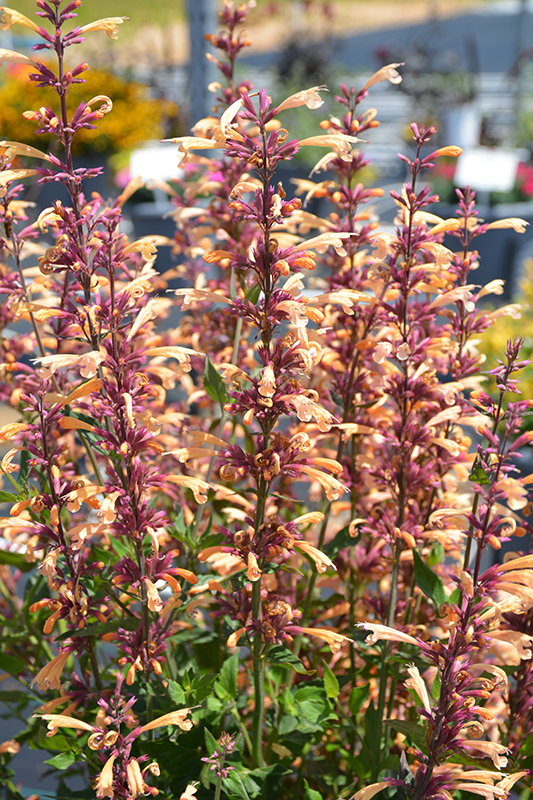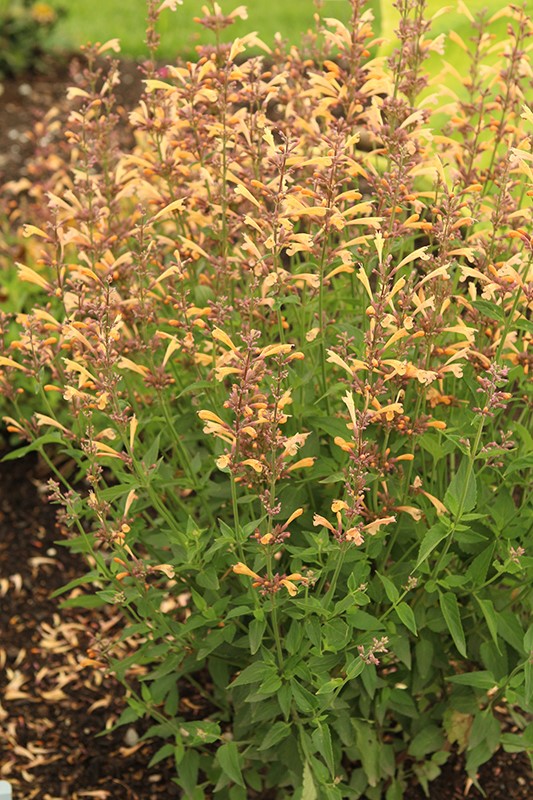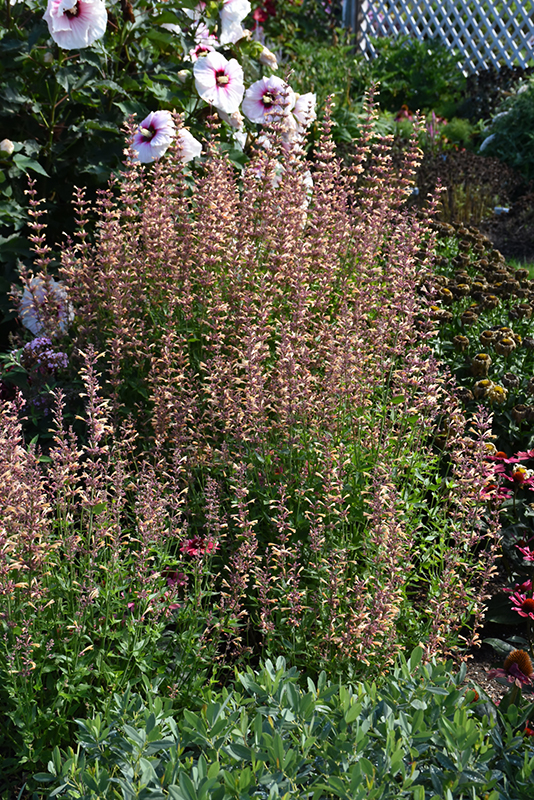Meant To Bee™ Queen Nectarine Anise Hyssop
Agastache 'Queen Nectarine'
Height: 3 feet
Spacing: 32 inches
Sunlight:
![]()
Hardiness Zone: 5a
Other Names: Licorice Mint, Hummingbird Mint
Group/Class: Meant To Bee Collection
Brand: Proven Winners
Description:
Easy to grow perennial flowers on airy spikes add lovely texture to any garden; soft peach blooms on mauve calyxes that hold their color after blooming; a favorite for butterflies and hummingbirds; aromatic, licorice scented foliage for a fragrant garden
Ornamental Features
Meant To Bee™ Queen Nectarine Anise Hyssop features airy spikes of lightly-scented peach tubular flowers with lilac purple calyces rising above the foliage from mid summer to early fall, which emerge from distinctive orange flower buds. The flowers are excellent for cutting. Its fragrant narrow leaves remain green in color throughout the season.
Landscape Attributes
Meant To Bee™ Queen Nectarine Anise Hyssop is an open herbaceous perennial with an upright spreading habit of growth. Its relatively fine texture sets it apart from other garden plants with less refined foliage.
This is a relatively low maintenance plant, and is best cleaned up in early spring before it resumes active growth for the season. It is a good choice for attracting bees, butterflies and hummingbirds to your yard, but is not particularly attractive to deer who tend to leave it alone in favor of tastier treats. It has no significant negative characteristics.
Meant To Bee™ Queen Nectarine Anise Hyssop is recommended for the following landscape applications;
- Mass Planting
- General Garden Use
- Naturalizing And Woodland Gardens
- Herb Gardens
- Container Planting
Planting & Growing
Meant To Bee™ Queen Nectarine Anise Hyssop will grow to be about 30 inches tall at maturity, with a spread of 3 feet. When grown in masses or used as a bedding plant, individual plants should be spaced approximately 32 inches apart. It grows at a fast rate, and under ideal conditions can be expected to live for approximately 6 years. As an herbaceous perennial, this plant will usually die back to the crown each winter, and will regrow from the base each spring. Be careful not to disturb the crown in late winter when it may not be readily seen!
This plant should only be grown in full sunlight. It prefers dry to average moisture levels with very well-drained soil, and will often die in standing water. It is considered to be drought-tolerant, and thus makes an ideal choice for a low-water garden or xeriscape application. It is not particular as to soil type, but has a definite preference for alkaline soils, and is able to handle environmental salt. It is somewhat tolerant of urban pollution. This particular variety is an interspecific hybrid. It can be propagated by division; however, as a cultivated variety, be aware that it may be subject to certain restrictions or prohibitions on propagation.
Meant To Bee™ Queen Nectarine Anise Hyssop is a fine choice for the garden, but it is also a good selection for planting in outdoor pots and containers. With its upright habit of growth, it is best suited for use as a 'thriller' in the 'spiller-thriller-filler' container combination; plant it near the center of the pot, surrounded by smaller plants and those that spill over the edges. It is even sizeable enough that it can be grown alone in a suitable container. Note that when growing plants in outdoor containers and baskets, they may require more frequent waterings than they would in the yard or garden.
A NetPS Plant Finder tool




